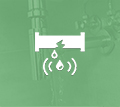Plumbing Emergency Preparedness: 8 Essential Steps for Homeowners
Plumbing emergencies can strike anytime and, if not promptly addressed, can cause significant damage and inconvenience. Being prepared can mitigate potential damage and stress, whether it’s a burst pipe, overflowing toilet, or sudden water heater malfunction. Here are essential steps every homeowner should take to handle plumbing emergencies effectively.
- Know Your Shut-Off Valves
- Keep Emergency Contact Information Handy
- Invest in Basic Plumbing Tools
- Learn to Manage Common Emergencies
- Regular Maintenance Checks
- Educate Household Members
- Consider Water Damage Insurance
- Act Swiftly
One of the first actions during a plumbing emergency is to shut off the water supply to the affected area. Locate and label all shut-off valves in your home, including the main valve. This could be near your water meter, typically found in basements, crawl spaces, or the utility area. Knowing their locations beforehand can save valuable time during a crisis.
Make a list of emergency contacts readily available, including your plumber’s contact information. Ensure all household members are aware of where this information is kept. Quick access to professional help can minimize damage and ensure repairs are handled swiftly.
While professional help is crucial, having a few basic tools can help you handle minor emergencies or mitigate damage until help arrives. Tools like a plunger, adjustable wrench, pipe tape, and a plumbing snake can prove invaluable in certain situations. Familiarize yourself with their use through online tutorials or guidance from your plumber.
Understanding how to manage common plumbing emergencies can prevent panic and minimize damage. For instance, in the event of a burst pipe, wrapping it with a towel and applying pressure can slow down the leak until a plumber arrives. Similarly, if addressed promptly, a clogged toilet can often be managed with a plunger.
Prevention is better than cure. Schedule regular plumbing inspections and maintenance checks with a professional plumber. They can identify potential issues early on, such as corroded pipes or worn-out seals, and address them before they escalate into emergencies.
Ensure all household members, including children, are educated on basic plumbing safety and emergency procedures. Teach them to recognize signs of a plumbing issue, such as unusual noises or damp spots, and respond promptly.
While prevention and preparedness are key, accidents can still happen. Consider investing in water damage insurance to protect your home against unforeseen plumbing disasters. Review your policy periodically to ensure it provides adequate coverage.
Time is of the essence during a plumbing emergency. Act swiftly to minimize damage by shutting off the water supply, containing leaks, and contacting your plumber immediately. Avoid delaying action, as even minor leaks can lead to significant damage over time.
Be Prepared, Stay Protected
Following these essential steps and being proactive in your approach to plumbing emergencies can safeguard your home and family from potential disasters. Remember, preparedness is key to minimizing damage and ensuring swift resolution. Stay informed, keep essential contacts handy, and prioritize regular maintenance to keep your plumbing system in optimal condition.
Expert Plumbing Services
For professional assistance with plumbing emergencies and routine maintenance, contact 1st Choice Plumbing, Flood & Restoration at 866-437-0205. Our team is ready 24/7 to provide reliable, efficient plumbing services tailored to your needs.










